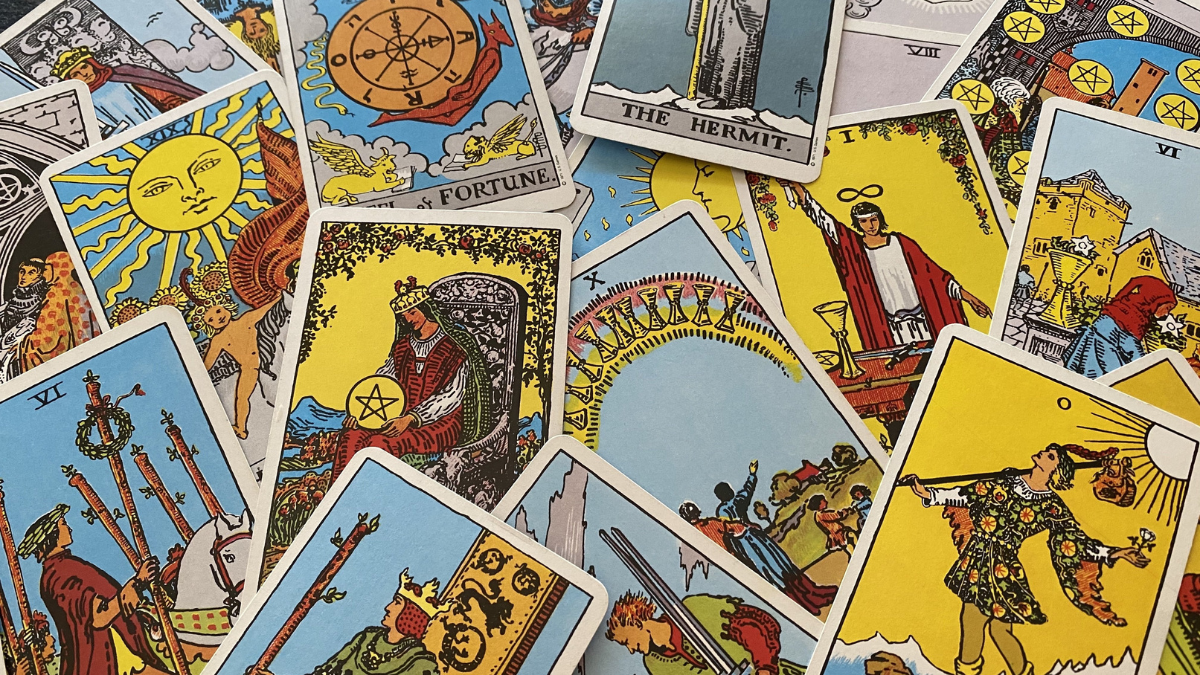It often feels like we live in a hyper-rational world. A world where data rules, where ‘true‘ means testable. A world where we log our steps and track our sleep and finally, inevitably, quantify our entire lives.
Yet whilst science and technology have delivered immense progress, there’s a growing argument that we’re on the road to civilisational collapse. No amount of spreadsheets and software and central planning seem able to stem the sense of chaos and impending doom.
70% of adults across 19 countries are pessimistic about their children’s futures. Everyone’s stressed and burned out (especially our youngest workers). Yes, we have running water and modern medicine and iPhones and AI, but it’s tough being a human in 2023.
It’s hardly surprising that people are looking beyond the rational for meaning and direction, seeking ‘momentary relief from the burdens of personhood.’
In our ‘post-truth’ age, this manifests in several ways. Misinformation, conspiracies and cults are the darker side, but there’s also an intriguing spiritual current.
The signals are everywhere if you’re open to them. From modern witchcraft to the surging psychedelic renaissance, ‘the accelerating process of decline in our society lets the waters of enchantment flow back in.‘
Let’s look at some numbers (because why should you trust me without hard data, right?):
- #Witchtok boasted more than 41 billion views on TikTok as of May 2023
- There are 22m posts tagged #tarot on Instagram
- The Co-star astrology app had 20 million downloads in its first 16 months
- The global psychedelic drugs market is projected to reach $10.75 billion by 2027
None of these interests can reasonably be described as fringe. Even Cosmopolitan magazine publishes weekly tarot readings. Modern forms of mysticism are moving ever more mainstream.
So what does all this say about our relationship with ‘truth‘? Should we be worried about a rejection of science and a descent into a new dark age?
I’d like to think the opposite. As Robert Wright reminds readers in Why Buddhism is True: The Science and Philosophy of Meditation and Enlightenment, it’s always sensible to ‘be suspicious of the intuition that your ordinary way of perceiving the world brings you the truth about it.‘
Psychedelic experiences are a pretty direct route to this realisation, helping people appreciate that the ‘ordinary waking perception‘ is actually a ‘controlled hallucination‘, in the words of philosopher Chris Letheby.
Jessica Dore — an experienced clinical psychologist with an interest in tarot and myth — insists it’s possible to accept ‘other ways of knowing‘ without denying or undermining the rational; ‘The goal is not to throw out facts, truth or science,’ says Dore — ‘but to make room for magic, long “relegated to the edges”.’
Other rare, brave voices, like the neuroscientist Dr. Laleh Quinn, are on record expressing real curiosity about mystical ideas like Jung’s concept of synchronicity. There’s something deeply radical about this opening towards what seems, on paper, impossible.
It’s worth remembering that some of the biggest scientific breakthroughs in human history have been mediated by trances and dreams. And today, psychedelics are being studied as potential catalysts of scientific creativity and insight.
Slowly but surely, the boundaries between logic and magic are blurring.
What does this all mean for brands?
In their timely and reflective report — The Age of Re-Enchantment — Wunderman Thompson suggest that ‘brands can help people transcend tough times and jolt them from long-standing malaise by celebrating the thrilling, the uplifting, the awe-inspiring, and the magical.’
They note that despite a widespread ‘quest for reawakening… desire to transcend the everyday and… optimistic impulse to actively usher in a kinder, more hopeful future,’ most brands aren’t currently tapping into these deep longings. Indeed, ‘70% of [gen z] say they can’t remember the last time a brand did anything that excited them.‘
Marketers should take these trends seriously and be curious about the cultural context from which they emerge. But perhaps the most vital advice is to make space for the spiritual, the intuitive and the unexplainable in your own life.
Exiting your regular reality tunnel and seeking out new ways of seeing and experiencing the world is your best hope of conjuring the kinds of magical ideas that might actually thrill, uplift and inspire an audience desperate for something different.
Featured image: Keith Gonzalez / pixabay

